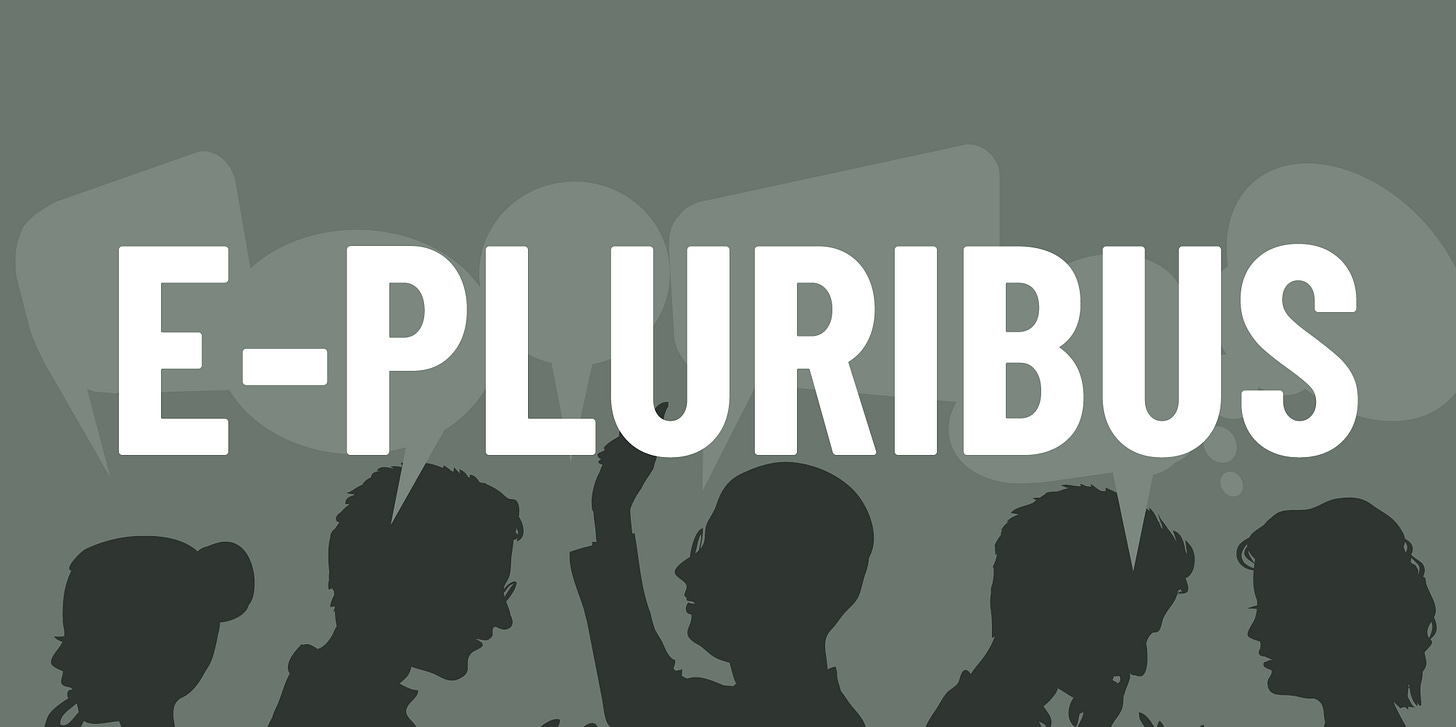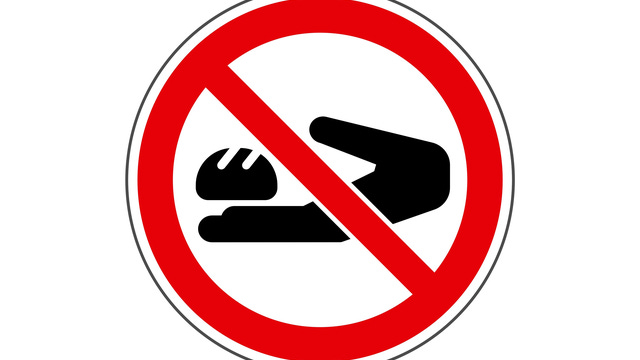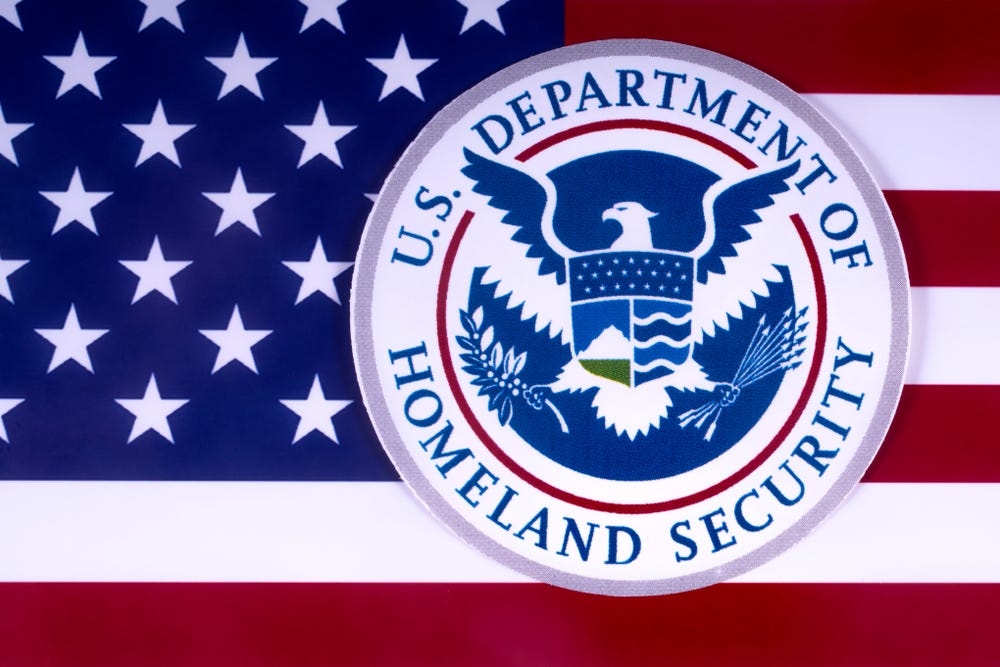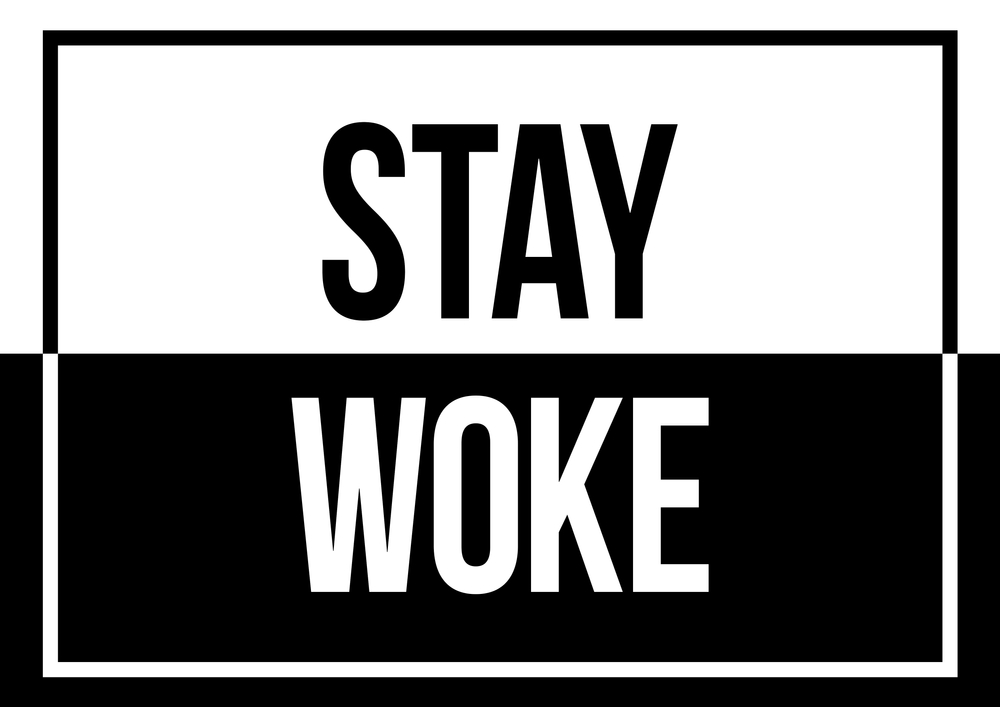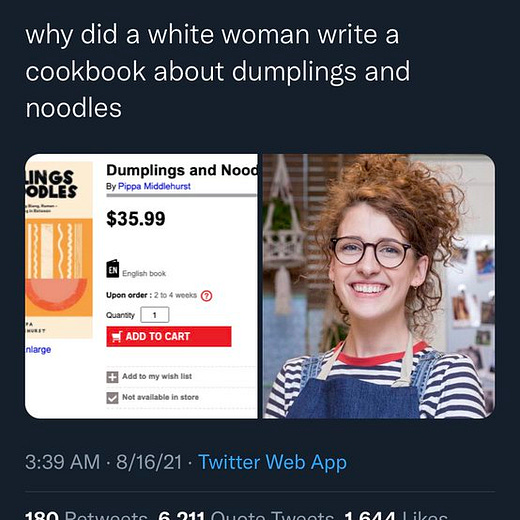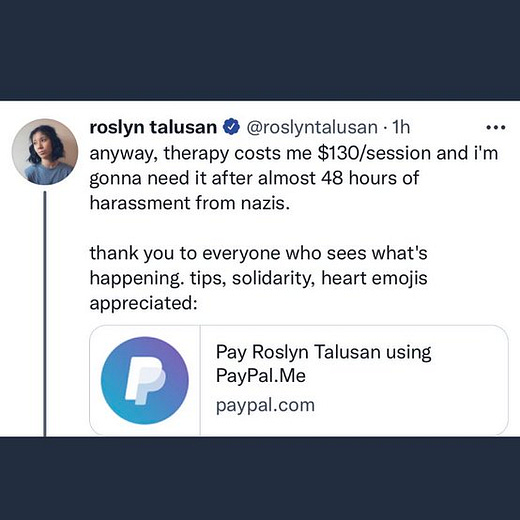E-Pluribus | August 18, 2021
Crony capitalism is bad for business, what constitutes a "terror threat," and the history of "woke."
A round up of the latest and best writing and musings on the rise of illiberalism in the public discourse:
Luigi Zingales: Please Don’t Feed the Businesses
As long as free markets have existed, politicians have also existed who wish to tinker with them to (ostensibly) improve market functions, but often also to serve the interests of their constituencies as well as their own political fortunes. Luigi Zingales writes at City Journal that crony capitalism can be just as harmful as market interference from an anti-business perspective. He zeroes in on improvements to the (necessary) rule-making process that would redound to the benefit of all.
We use the term “free markets” so often that we sometimes forget what it actually means. If you look up “free markets” in the dictionary, you might see “an economy operating by free competition,” or better, “an economic market or system in which prices are based on competition among private businesses and not controlled by a government.” Both definitions emphasize the element of competition, which is important. But they don’t say—in any possible form or shape—that markets operate without rules. Because, in fact, markets do need rules to operate well and to be competitive.
There is a reason, however, that these rules might be distorted to create barriers to entry. For example, in Italy, I know that to write any insurance contract, you have to sign a document in person. Why? Simply because the incumbent insurance company is trying to block online insurance from competing, so they impose an undue burden on consumers to make sure that the competition is hampered. That’s the problem when rules get distorted in favor of incumbents.
Basically nothing guarantees that the process of rule formation will deliver decent, if not optimal, rules. Incumbents have many ways to shape rules in their favor; in general, we see very pronounced biases in their favor. The question that I tried to address in my co-authored 2003 book, and in research that I’ve done since, is this: how do we make sure that we have the rules to make the market competitive, but don’t have such an excessive amount of rules that they stifle competition and gains in efficiency?
How indeed. In a sense, the tension in a capitalist economy is that we want everything to be for sale, except the rules themselves. For if the rules were for sale, they would be bought out by probably the most powerful incumbent and would not be designed to keep the market open. So we would like the rules to be set by somebody like an independent arbiter. But as we know, these independent arbiters are hard to find.
Read it all here.
Eric Boehm: Homeland Security Says Americans Upset by 'Public Health Safety Measures' Could Be Terror Threats
The Department of Homeland Security has come under fire throughout its existence from both the left and right for overreach. Eric Boehm of Reason relates the latest example. Even in the absence of actual threats, a recent DHS bulletin raised the spectre of violence stemming from opposition to pandemic-related health measures and restrictions.
The actual two-page bulletin… warns that threats "posed by domestic terrorists, individuals, and groups engaged in grievance-based violence" could be "exacerbated by impacts of the ongoing global pandemic, including grievances over public health safety measures and perceived government restrictions." The document also warns that reopening schools, churches, and other places where people gather could "provide increased targets of opportunity for violence though there are currently no credible or imminent threats identified to these locations" (emphasis mine).
When all you have is a hammer, everything looks like a nail. And when your entire mission statement revolves around stopping terrorists, everything looks like an opportunity for terrorism.
It should go without saying that challenging or questioning the various constitutionally dubious, contradictory, and often times nonsensical government policies that are ostensibly meant to combat the pandemic does not make someone a terrorist. Indeed, if that were the case, some government officials would be top suspects.
It's equally true that holding or sharing inaccurate opinions about the outcome of the last presidential election does not make someone a threat to the country. There's a big difference between expressing an opinion and storming the U.S. Capitol building as part of a politically motivated riot—and law enforcement should be able to tell the difference.
Read it all.
John McWhorter: How ‘Woke’ Became an Insult
In his first newsletter for the New York Times, John McWhorter delves into the etymology of “woke” and its transformation (or hijacking, depending on your perspective) over the last few years. McWhorter compares the evolution of “woke” to the similar journey of “politically correct” and provides an interesting perspective to how language can both shape and be shaped by social, cultural and political issues.
In 2012, people were using “stay woke” on Twitter with unalloyed pride. As late as 2016, you could find rosy-cheeked teens and 20-somethings all but chirping “woke,” such as in this earnest little guide to the latest slang.
No more. These days, “woke” is said with a sneer. It’s a prisoner in scare quotes as often as not (“Why ‘wokeness’ is the biggest threat to Democrats in the 2022 election”) and typically uttered with a note of condescension somewhere between the way comedians used to talk about hippies and the way anybody talks about, well, rather than a word beginning with “a” you’ll find discussed, among other places, here, I will sub in “jerks.”
The first thing that happened to “woke” was that it was borrowed from Black slang. It first appeared in neither a BuzzFeed article nor a rap but a jolly piece on Black vernacular expressions in 1962 in this newspaper called “If You’re Woke, You Dig It.” Many will be surprised that “salty,” as in “irritable,” another Black expression that white people have taken on of late, also occurs in this piece.
By the time something hits the page, we can be sure it had been around long before, and it’s a good guess that Black people had been using “woke” for at least a couple of decades before this. Lead Belly gives us a look at its likely origins when he urges people to “stay woke” in an afterpiece remark on a 1938 recording. He is referring to Black people being alert to actual physical danger; it would have been a natural evolution to start using “stay woke” to refer to more, as we say, systemic matters.
Read the whole thing.
Around Twitter:
Grant Addison on the back door the Biden administration is using to impact public school curriculum:
A recipe tweet about dumplings caused quite a stir recently. Here’s a Michael Shellenberger thread/conversation on how progressives’ take on race has morphed over the past 30 years:
And finally, the Dumplings incident, as summed up by Thomas Chatterton Williams:



